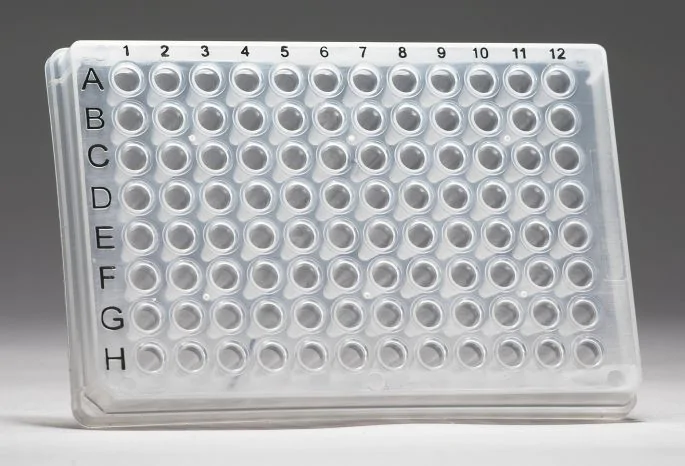The primary function of chondrocytes is to synthesize and secrete cartilage matrix during injury and repair. To perform this task, chondrocytes need to sense changes in their surrounding cartilage ECM, therefore chondrocyte mechanotransduction is a key component of healthy articular cartilage function. ScienCell's GeneQuery™ Human Chondrocyte Channels and Receptors qPCR Array (GQH-CCR) facilitates gene expression profiling of 88 channels and receptors involved in chondrocyte mechanotransduction and environment sensing. Brief examples of how included genes may be grouped according to channel or receptor type are shown below:
- Potassium Channels: - KCNA4, KCNJ8, KCNK5, ABCC9, ABCC8
- Chloride Channels: - ANO1, ANO3, ANO5, CFTR, CLCN3
- G protein-coupled receptors: - HRH1, PTGER1, ADORA2A, P2RX1, P2RY1
- NMDA receptors: - GRIN1, GRIN2A, GRIN2B, GRIN2D
- Chemokine receptors: - CCR1, CCR2, CCR5, CXCR1, CXCR2
GeneQuery™ qPCR array kits are qPCR ready in a 96-well plate format, with each well containing one primer set that recognizes and efficiently amplifies a specific target gene's cDNA. The carefully designed primers ensure that: (i) the optimal annealing temperature in qPCR analysis is 65°C (with 2 mM Mg^2+ and no DMSO); (ii) the primer set recognizes all known transcript variants of the target gene, unless otherwise noted; and (iii) only one gene is amplified. Each primer set has been validated by qPCR with melt curve analysis and gel electrophoresis.
The carefully designed primers ensure that:
(i) the optimal annealing temperature in qPCR analysis is 65°C (with 2 mM Mg2+ and no DMSO); (ii) the primer set recognizes all known transcript variants of the target gene, unless otherwise noted; and (iii) only one gene is amplified.



